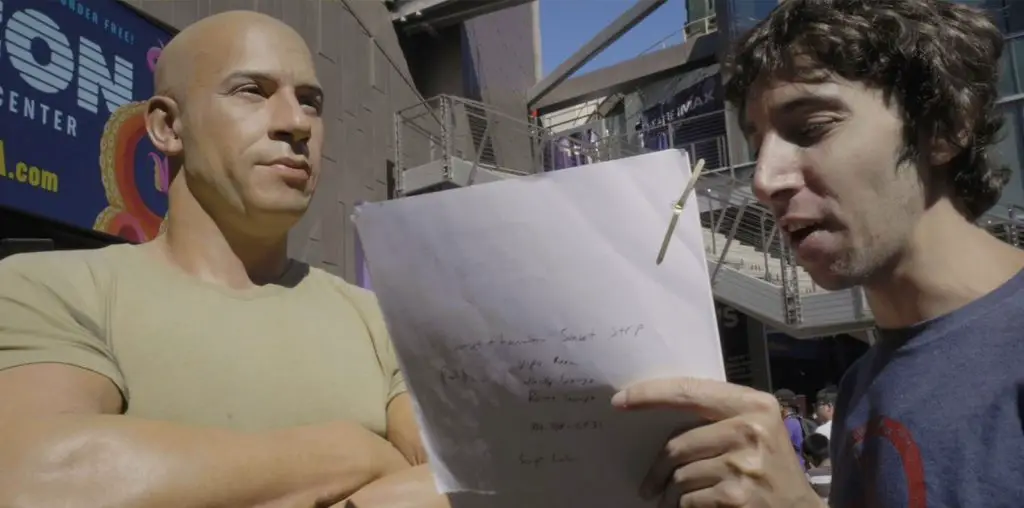
Quentin Lee’s “Drift” is one of the year’s best films. An extraordinary work of intellectual maturity and emotional depth, this no-budget DV feature (shot in 12 days with a five-person crew) is a stunning celebration of the power of independent cinema when wielded by those who know how to harness its fullest potential.
“Drift” opens with a young gay couple on the eve of their third anniversary together. Ryan (R.T. Lee) is an aspiring screenwriter who covers his bills with a day job at a coffee house. Joel (Greyson Dayne) is the webmaster for a gay community center. While Joel deeply loves Ryan and has no complaints about the course of their relationship, Ryan feels increasingly hampered by an evaporating common bond between them. This sense of unease is driven further by an encounter at a party with Leo (Jonathon Roessler), a 20-year-old college student with literary aspirations. Ryan feels an intellectual and artistic bond with Leo that is lacking with Joel and, after much thought, he painfully decides to close his relationship with Joel.
“Drift” sets up an intriguing love triangle and then takes it in a totally unexpected direction: three ruminations on where the triangle spins after Ryan leaves Joel. One scenario follows the blossoming relationship between Ryan and Leo, who gives both his heart and his virginity to his new-found love, while Joel is the sad odd man out. The second plotline places Ryan in the difficult situation of realizing that Leo is not the boy for him and that his heart genuinely belongs to Joel–who is initially in no great rush to welcome Ryan back. Finally, there is the story of Ryan learning that Leo’s feelings for him do not go beyond the platonic, but that Leo would rather pursue a relationship with the now-free Joel.
The beauty of “Drift” rests in the subtlety of the screenplay and the graceful talent of the three main actors. Quentin Lee’s screenplay is mercifully free of big dramatic moments or tacky sharp edges which inevitably ruin love triangle stories. Instead, “Drift” is a careful collage of hundreds of small moments, gestures and pauses which float the film in a most sublime manner. This is the rare indie film which understands how real people speak and behave: from the widening of Leo’s eyes when he realizes he’s about to get his first kiss to the silent meditation of unhappy Ryan sitting in an upright fetal position (as if shielding himself from a collapsing world) to the stab of inner anguish mirrored on Joel’s voiceless face when he arrives unannounced at Ryan’s workplace and discovers Leo was there first.
To its credit, “Drift” is the rare gay-oriented film which presents gay men as intelligent, articulate and sincere adults who accept responsibility for their actions. This film does not indulge in presenting gay men with the tiresome stereotypical roles that run the very limited gamut of mincing queens, promiscuous predators or psychological f**k-ups. The film also has unexpected fun with the conventions of mainstream cinema (not to mention the gay-oriented cinema) by giving Ryan a pair of straight confidantes who provide comic commentary and a shoulder to lean on when the going gets tough.
“Drift” is produced in a Dogme-style manner, composed primarily of medium and close shots photographed in natural light and (it seems) without the use of make-up on the actors. Unlike other filmmakers whose attempts at Dogme filmmaking create obnoxious and amateurish-looking works, this film has a rough documentary look which compliments the maturity of its focus. (Special kudos for Steven Pranoto’s delicate musical score, which laces its way through the film without overspicing the scenes.) And although the film is set in Los Angeles, Lee presents the city as a vapid, charmless location…and even the celebrated California coastline looks less than exciting here. This is an unusual tactic which pays off: “Drift” is ultimately about people who create their own environment and are not shaped by the venues and buildings and beaches around them–the drama is in the individual, not the settings.
At the end of the third scenario, Ryan sets off from Los Angeles and is lost to the viewer in a sea of automobiles clogging the highways…his story and his world orbits out of sight, as if our visit to his planet is over. In many way, the world of “Drift” is an alien experience: it is difficult to recall any recent romantic drama, either straight or gay, which offers such an intelligent dissection of the wonderfully messy business called love.
“Drift” is currently beginning its trek around the gay and lesbian film festival circuit. Hopefully, the film can break out of that lavender celluloid ghetto and enjoy a theatrical release which attracts people of all persuasions who are hungry for a great film. And “Drift” is a truly great film.
